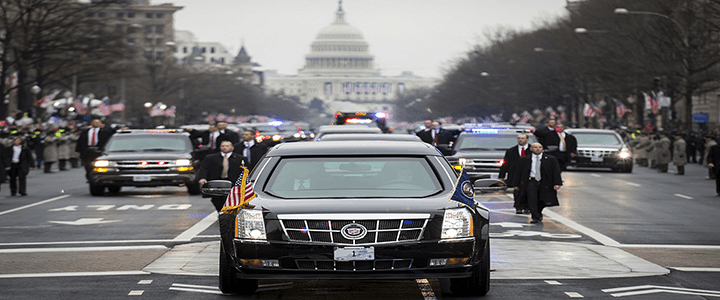Repeat after me: The President of the United States is the classification authority in the United States of America. He can declassify information at the stroke of a pen or by speaking the word. Classification flows through the President of the United States.
The media machine is in full spin mode this morning with a Washington Post exclusive that Trump revealed ‘highly classified information’ to Russian diplomats. The media may be correct to question the President’s wisdom in doing so, but to speak to it as if he’s violated any rules of classification in doing so is flat out wrong. To criticize the President’s judgment in revealing the information, claiming national security is at risk, and then revealing every detail of the leak strikes me as particularly contradictory.
“The sky is falling! The President is leaking highly sensitive classified information that will put Americans at risk! Here are all of the details of what that information is!!”
I just listened to a news reporter ask ‘Will spies die as a result of the President’s comments?’ So, clearly everyone is staying level-headed in all of this.
Debating what the President said or whether or not he’s an idiot will fill much of the national conscience for the next four years. But it’s not relevant in this situation.
the President’s Role in Classification
When you vote in a Presidential election, you’re voting for the top of the Intelligence Community hierarchy. Before the election we discussed what kind of a security clearance the president gets. Contributor David Brown wrote:
“Presidents, by virtue of their position, are practically incapable of violating clearance law. If a president wants to declassify something, he or she can more or less declassify it by fiat.”
This debate was relevant prior to the election because there were concerns prior to the election about possible collusion between Trump’s campaign and Russia. And because Hillary Clinton was keeping classified information on an unsecure server and in some cases it emailing it to people like her housekeeper, or advisor Huma Abedin (whose husband likes to send pictures of his penis to teenage girls. While running for public office. So, clearly no blackmail concerns there).
National Security Advisor H.R. McMaster carefully called the story, ‘as reported’ to be false. He didn’t dive into what the President did or didn’t say. The President himself later confirmed he did discuss “facts pertaining to terrorism” in the scheduled meeting with Russia. Reports have now gone on to accuse McMaster, the Army’s smartest general, of collusion, lying, or contradicting the statement of the President.
But if you understand classification policy (or you read the Washington Post story with some healthy skepticism), it’s clear a lot of the story is driven by a failure to understand (or perhaps come to grips with), the great national security responsibility entrusted to the president. The debate over who should hold that role was one for last year. Today’s debate would be better served by focusing on the judgment in sharing the information, not the president’s authority to do so. I’m pretty sure that’s a discussion that’s happening in the White House right now. Along with who in needs to be fired for leaking to the Post in the first place.



